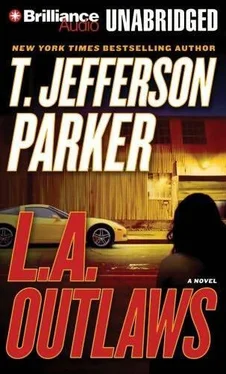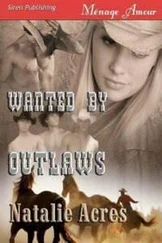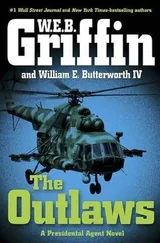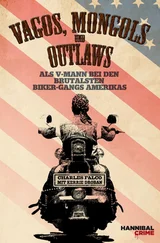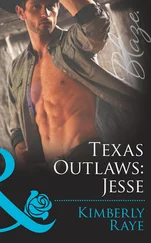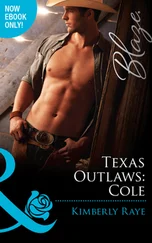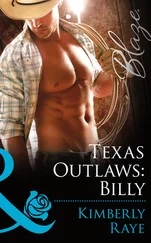For a long while he stood leaning against his car, letting the dry, hot wind press against him. It was nice to feel it again. He had loved the Bakersfield wind when he was a kid, sending plastic kites up into it and feeling the string unspool in a steady rush while the kite urgently vanished into the blue brown sky. And he’d loved the Bakersfield wind when he went out riding a borrowed horse with friends along the roads between the cotton farms and the oil fields, the way the wind shivered the white fluffy balls and whistled through the derricks. It was the same wind that blew through Anbar province, but he had few pleasant memories of Iraq with which to associate it. He wondered if Lupercio had ever felt that wind down in El Salvador.
Hood slung the holster and gun over his shoulder and stepped back into the courtyard. He stopped in front of the fireplace. He touched the big black kettle and confirmed that it was made of plastic. The canna lilies were paper.
That evening Hood went into the city. He bought food, underwear and shampoo at a Kmart. Then he turned the Bill Woods music down low in the Camaro and drove slowly past the Blackboard and the Corral, where Woods and Owens and Haggard had created the Bakersfield Sound-electric twang, raw and rough, “too country for country” according to the Nashville smoothies.
This had all happened decades before he was even born. But as a boy Hood had loved the sound of their recordings, and their straightforward tales of prison, drinking, working the rigs, truck driving. To teenaged Charlie Hood the music had seemed truthful and moving-dispatches from a pained world of which he caught glimpses in the Bakersfield all around him. And this is what he heard in it still.
He swung by his old high school, home of the Drillers, then the house where he’d grown up. The house hadn’t changed much in ten years. The paint was new and the trees were taller and the campaign signs on the bumper of the pickup in the driveway were for Hillary Clinton instead of Bill.
He was back in Madeline Jones’s home before sunset. He checked the answering machine: Madeline had checked in and that was all.
At dusk he sat for a while in Suzanne’s room. It appeared to have been abandoned about 1994, Suzanne’s senior year of high school, when Suzanne wasn’t really a graduating girl of eighteen but a mother with a small child and a job in a fast-food place and plans for college so she could teach history. There was a small plastic infant’s bed in one corner. There were teenagers’ clothes and infant clothes still hanging in the closet. How had she managed all that?
Hood ate his dinner in the darkness of the courtyard, with the fountain turned off and his.38 next to the cat on the chair beside him, waiting for Lupercio.
An hour later the cat had taken up position on Hood’s lap and he was petting it when he heard a light concussive thud from the desert beyond the driveway.
Hood froze and listened. It might have been a car door opening, or a gate tapping against its post, or an errant foam food container slapping up against a fence, or some other faint event within the play of wind and silence and the purring of the cat. He knew how far sound could travel in clear, dry desert air.
Hood picked up his gun, and when the wind died for a moment, he turned his ear toward the desert and listened.
Opened car doors usually get shut, he thought.
Silence.
The cat slipped away when Hood reached over and picked up his flashlight off the floor.
He stood just inside the entrance to the courtyard, saw the moon low in the west and the glint of the moonlight on the fender of his Camaro and the stars flickering in the canopy of the night like diamonds caught in black mesh, and he thought of Suzanne then dropped her from his mind.
He followed his flashlight beam across the driveway, boots crunching on the gravel, gun in his right hand. At the fence he stopped and aimed the light into the desert, which easily consumed it but revealed little of itself. Within the limited beam the branches of the sage and creosote shivered white.
In the middle distance Hood made out the shapes of sand hills. He had chased lizards through such sand hills when he was a boy. On the dunes their tails left long, straight lines and their feet left pointillist claw dots on either side of the lines. Sometimes Hood would follow a track for hundreds of yards, over hill and dune, until it ended at a hole.
Now in the moonlight the sand hills were pale and dotted with sagebrush, and he remembered that they could be steep-sided and softly packed and treacherous to climb.
He turned off the flashlight and walked toward the hills. Gradually the sand under his boots hardened into a dirt road. He didn’t like the crunch of the road so he moved off to one side of it, and as he got closer to the sand hills, he saw that they were higher than he had thought. The faint dirt road wound into them and vanished.
The road comes out of the sand hills, Hood thought, so it probably comes in on the other side of them. But he also remembered the odd incompletion of man-made things in this desert: a section of fence connected to nothing, a foundation slab poured but never framed, a mine abandoned after eight feet of progress, and everywhere fragments of dirt roads connecting nothing to nothing.
He walked the road between two of the lower sand hills. The moonlight diminished while the shadows deepened, and Hood had trouble clearly seeing the hills ahead. He stumbled in a rut and caught himself but the sound was sudden and loud. He stood for a moment feeling his heart race.
At the foot of the next hill Hood jumped onto the slope, leaned forward and wide-stepped his way up, sand giving way, gun and flashlight out for balance. Thirteen steps. On top the moonlight was stronger, and he clearly saw the old black Lincoln Continental parked on the road between the hills.
He swung around as fast as he could, gun first.
A bad taste rushed into his throat-of hot spoiled antacid pooled on top of fear-the taste of Hamdaniya and Miracle Auto Body and the Valley Center barn.
But all he saw was darkness and the way he had come and in the near distance the lights of Madeline Jones’s driveway.
Hood turned back and looked again at the car. Then he crouched and scuttled across the hilltop. From the far side he could look almost straight down on the Lincoln. The windows were darkly smoked and revealed nothing, but through the windshield he could see the glint of moonlight on the dashboard and on the upper circumference of the steering wheel.
He knelt with the unlit flashlight braced in the sand for balance and let his eyes wander the desert around the car. He thought of the carnage that Lupercio had left behind in the barn, and of the dozen men he’d killed before the most violent gang in L.A. had sued him for peace, and how Lupercio seemed to be prescient and ubiquitous.
Hood used his flashlight hand to slip the phone off his belt, punch it on and dial the Bakersfield PD number they’d given Marlon.
He gave the sergeant Madeline’s address and his location, said he had reason to believe a violent felon was in the vicinity. He asked for the car to run with no color, no sirens. The sergeant sounded skeptical and he took Hood’s cell number.
Five minutes went by.
Protect me, Hood thought.
He rose and hopped off the top onto the slope, leaning back and stepping big down the flank of the hill, his heels sliding through the loose sand and sending the gravel down with a hissing sound that he could not prevent.
He jumped onto the dirt road and used his momentum to jog toward the car.
His flashlight was in his left hand, his.38 Mustang in his right, wrist on wrist for control. Hood sighted down the barrel of the pistol. Up close to the car the flashlight beam passed through the windshield and diffused. Through it Hood could see inside the car-rearview mirror and empty front seats and the dome light and the glistening buckles of the shoulder restraints that were folded neatly as bat wings beside the rear seats.
Читать дальше
